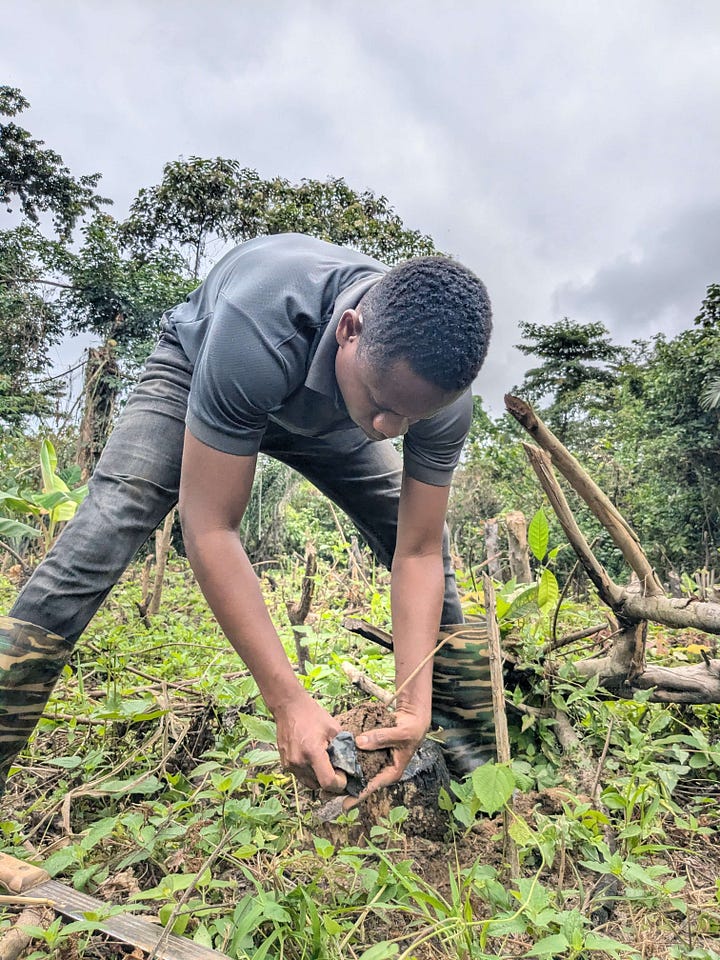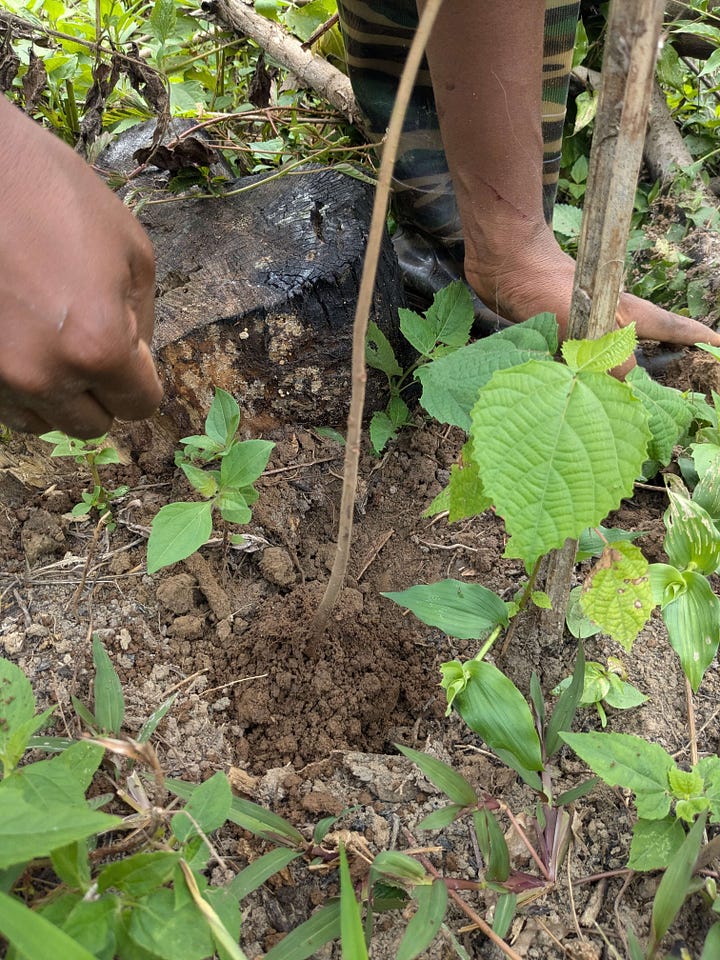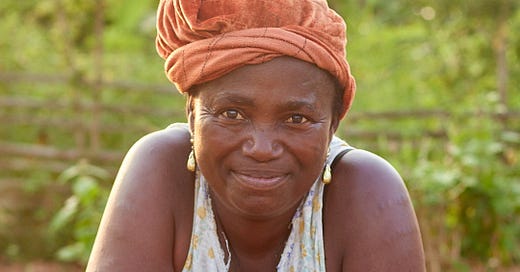Friend,
It’s 3:51 AM on this side of the equator. The half-opened glass louvres make way for the harmattan breeze to circulate in this semi-lit room. It’s a perfect time to hide under the sheets and just…
But I’m losing sleep.
Two letters ago, you read about my switch from interviewing farmers to spending time with them to get a deeper understanding of their lives and, hence, richer cocoa stories.
Well, since that change, I’ve become sensitive to anything cocoa. Whether I’m in the streets of Asamankese, or navigating thick bushes in a rural community, I’m always sniffing for cocoa stories. Even at the mere mention of ‘cocoa’ my ears twitch, ready to eavesdrop. I can’t help it.
But that's not why I'm sleepless right now.
You see, even on social media, my eyes have remained wide open, examining how companies tell stories about cocoa-farmers. Doing this makes me uncomfortably convinced:
Cocoa farmers have been CSR-zoned.
CSR-zoned? Like being friend-zoned or, worse, brother-zoned? Yep, exactly, I'm afraid. Let me explain:
I've seen these men and women labor to produce the major raw material for chocolate, and each time I’m struck by their skill, expertise, intelligence, resilience. Many of them have moved through life in such ways as should be featured in documentaries, hence my African Cocoa Stories project.
Yet, on social media, cocoa-farmers - the same people who have stolen my heart - seem to appear only to demonstrate how a Corporate Social Responsibility (CSR) project changed their lives.
Even when a story simply celebrates a farmer, a short sentence at the end reminds us of a company’s CSR commitments while encouraging you to also help by buying our chocolate!
That, for me, is CSR-zoning. It matters because the way we tell stories about cocoa farmers shapes how we value their contributions, and that has real consequences for how the industry treats them.
But how did we get here?
CSR-zoning seems to stem from when companies started needing to prove their supply chains were ethical and transparent. The result is stories upon stories of how every company is improving cocoa farmer's lives.
This is a good PR and consumer reassurance technique. But cocoa farmers are not all problems and struggles. They are first experts and craftsmen; irreplaceable partners whose work makes chocolate and the cosmetic industry possible.
Besides that, their diverse personalities and personal journeys make fascinating stories. Mr. Acheampong will crack you up with his humor, while Issifu's education story teaches you a lesson or two on resilience.
Compared to these stories, dependency narratives are overused clichés, and clichés are boring.
Besides, don't we all want to be seen for the value we bring, and not just the challenges we face? Imagine dedicating your life to a craft, only to be constantly defined by what you lack, not by the beauty you've created. That is what CSR-zoning does, and I yearn to see companies do better.
But how?


I'm still thinking about it. But right now, I have a challenge for chocolate brands, and a question for consumers:
Chocolate brands: of course, share how you support farmers and their communities. But explore ways to highlight the invaluable work farmers do to make yours possible. If the industry is impossible without them, then your consumers should first see them as such, not as people who need saving.
Consumers: how often do you think about cocoa farmers as skilled craftsmen and experts, rather than mere recipients of aid? If brands CSR-zone cocoa farmers to reassure consumers of an ethical supply chain, then the fight against CSR-zoning should start with how we consumers perceive farmers.
Thank you for taking the time to read this early-morning thought. My journey telling African cocoa stories continues, so look out for more letters.
But before I leave you, a quick question:
Would you want to be CSR-zoned?
Happy reflections and, take care. ❤
Warmly,
Benjamin Setor
Credits to
for helping improve my draft. And for making writing gyms possible!







…i mean you raise a tremendous even larger point…how often does anyone really think about the makers of their consumption…the stories behind them, but also the story of the broccoli rabe getting to your maw (who farmed it, drove it, stocked it on the shelf)…it is crazy how moneymaking so quickly kills our story in the effort to shrink us to a bottom line…so much of life becomes mindless object hoarding consuming and injection…how much richer is an existence where all the real tendrils of our actions are witnessed to inception and completion point while honoring the creators…if i had to tell myself the story of all the foxxcon workers who made my iphone before i sent a mannequin meme to a buddy this device would be in the ocean by now…
I love this! Can’t wait to read the next post.